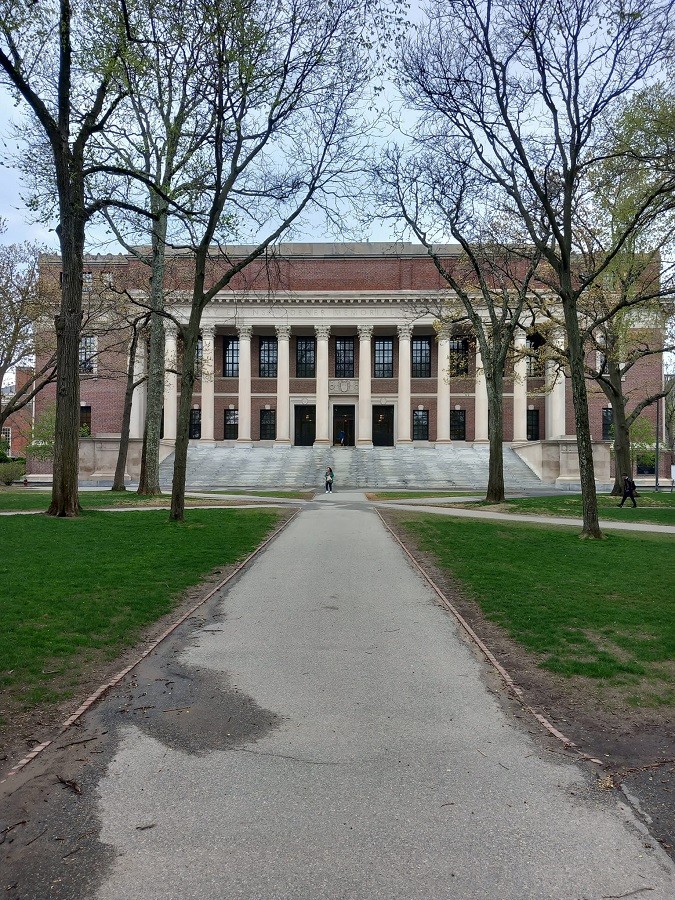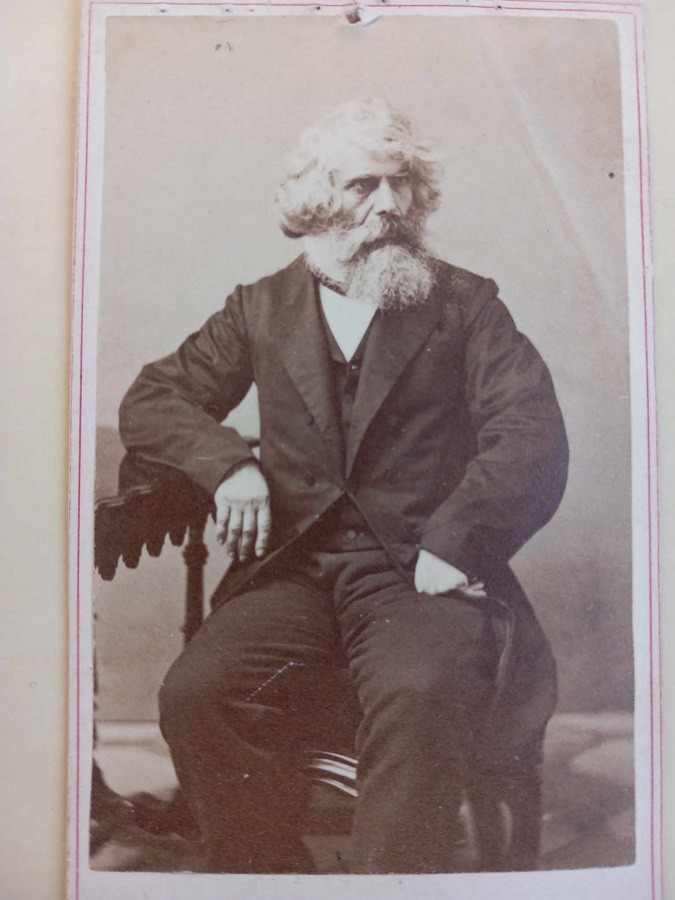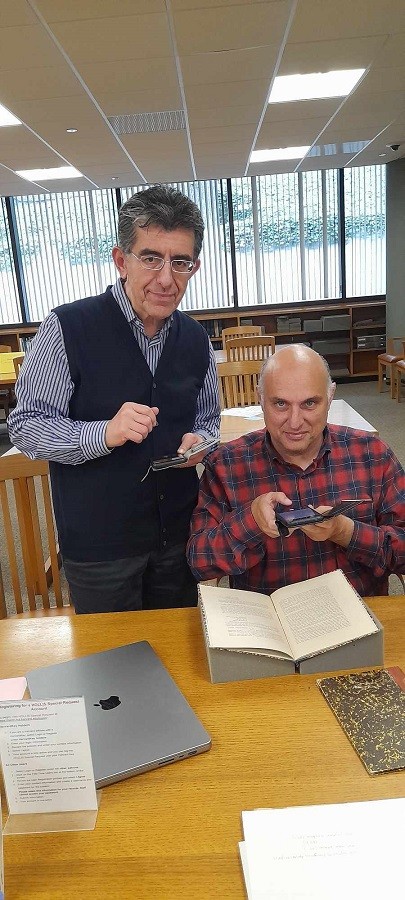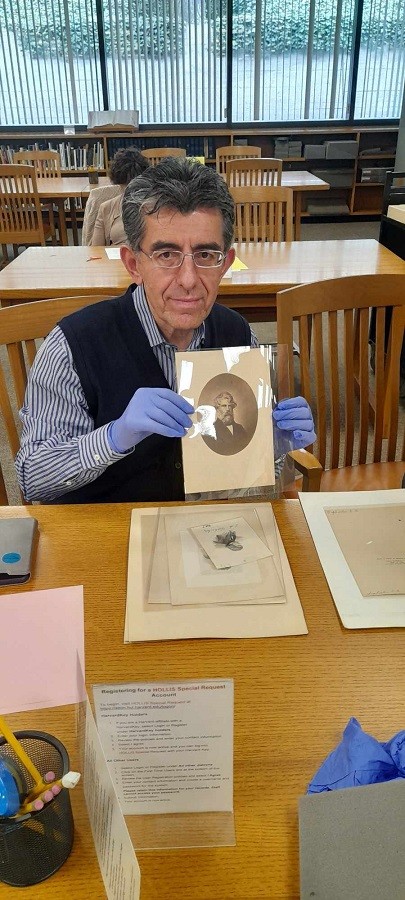As part of a research project for the study of Classical Greek Philology, a group of faculty members at the Department of Philology of NKUA visited the Harvard University Archives at Cambridge, Boston, from 28 April to 5 May 2024. The group included the project’s Scientific Responsible, Associate Professor Vassilios P. Vertoudakis, the Chair of the Department of Philology, Professor Theodora Antonopoulou, and the Director of the Division of Classical Philology, Professor Amphilochios Papathomas. The project receives financial support from the Tsagadas Trust and the Special Account for Research Grants of the National and Kapodistrian University of Athens.


The delegation’s primary goal was to research the life, academic activity, and work of Evangelinos Apostolides, better known to the international philological community as E. A. Sophocles (1804-1883). Apostolides was born in Tsangarada on the slope of Mount Pelion, was orphaned early in life and under the protection of his uncle, Constantius of Mount Sinai, was educated in Egypt and later on as a disciple of Anthimos Gazis on Syros. The latter gave him the name ‘Sophocles’ to compliment his love of learning and erudition. At the invitation of an American missionary, the Reverend Josiah Brewer, Apostolides arrived in 1828 in Boston. He continued his education at various colleges in Massachusetts, where he studied Latin for the first time. In 1842, he went to Harvard as tutor in Greek. In 1859, he became assistant professor and, in 1860, a new professorship of Ancient, Byzantine, and Modern Greek was created for him, which he held until he died in1883. Apostolides had the reputation of being grumpy towards his colleagues but very friendly towards his students. He led a secluded and frugal life and left most of his fortune to Harvard University. The internationally best-known work by E. A. Sophocles is the Greek Lexicon of the Roman and Byzantine Periods from BC 146 to AD 1100 (1870), which has since then been constantly republished (last reprinted in 2010).
The members of the delegation researched the archival collections held at Harvard in the Houghton, Pusey, and Schlesinger libraries. They also studied material in Harvard’s Central Library, Widener, and the Library of Brown University in Providence, Rhode Island. Their research proved very productive. They discovered Apostolides’s will, his correspondence with significant figures in the US, unpublished texts from his corpus, and many photographs and portraits of him. The new evidence that has come to light on the life and scholarly work of this important Hellenist of the 19th century will constitute the raw material for future publications by the members of the research team from NKUA, enriching to a great extent our knowledge from the limited to date bibliography on E. A. Sophocles.










 The session has ended for security reasons.
The session has ended for security reasons.